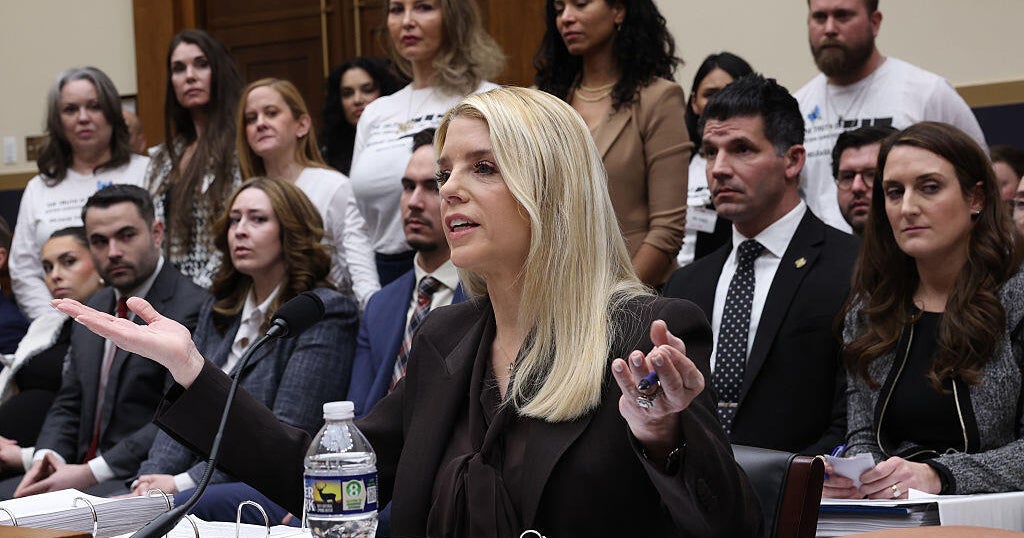3 takeaways from the fourth day of the House Jan. 6 committee's public hearings
The fourth public hearing of the House Jan. 6 select committee focused on the persistent pressure applied by then-President Trump and his personal lawyer Rudy Giuliani on state officials and election workers in an effort to overturn the 2020 election results — even though Giuliani and Trump were repeatedly told by administration and state officials, as well as Trump campaign lawyers, that there was no evidence of widespread election fraud.
Despite this, Trump and allies including Giuliani pressed officials to change the vote count in Georgia and to replace electors won by Joe Biden in Arizona, Wisconsin, Michigan and Pennsylvania with fake alternate electors supporting Trump.
Three state officials — two from Georgia and one from Arizona — and a mother and daughter who were election workers in Fulton County, Georgia, testified before the select committee on Tuesday about Trump's and Giuliani's efforts to change the election results and the effect it had on their personal and professional lives.
Here are some key moments from Tuesday's hearing.
Committee displays texts showing Sen. Ron Johnson attempted to deliver fake slates of alternate electors from Wisconsin and Michigan to Pence on Jan. 6
A text exchange obtained by the select committee revealed that a staff member for Sen. Ron Johnson, a Republican from Wisconsin, told a top aide to Vice President Mike Pence before the joint session convened on Jan. 6 that Johnson wanted to hand the vice president an alternate slate of electors from Michigan and Wisconsin.
The first message was sent from Sean Riley, Johnson's chief of staff, to Chris Hodgson, Pence's former director of legislative affairs, at 12:37 p.m. on Jan. 6 and read: "Johnson needs to hand something to VPOTUS please advise."
"What is it?" Hodgson replied immediately.
"Alternate slate of electors for MI and WI because archivist didn't receive them," Riley texted back.
"Do not give that to him," Hodgson responded.
Republicans in seven states — Wisconsin, Michigan, Arizona, Georgia, New Mexico, Nevada and Pennsylvania — submitted themselves as delegates to the Electoral College in December 2020, even though the states certified Mr. Biden the winner in each of them.
Alexa Henning, Johnson's spokeswoman, said on Twitter in response to the text exchange that the senator "had no involvement in the creation of an alternate slate of electors and had no foreknowledge that it was going to be delivered to our office. This was a staff to staff exchange. His new Chief of Staff contacted the Vice President's office. The Vice President's office said not to give it to him and we did not. There was no further action taken. End of story."
Johnson told CBS News' Robert Costa, via text, that the "answer is NO," in response to a question about whether he ever contacted Pence personally about electors. "This is a complete NON story," he added.
State lawmakers, election workers and their families all faced threats in the weeks leading up to Jan. 6
Tuesday's witnesses, who are all public servants, described in sometimes emotional terms how their lives had been upended by threats made against them as Trump and his allies ramped up their pressure campaign to get them to overturn the 2020 election results.
Fulton County election worker Wandrea Arshaye ("Shaye") Moss and her mother, Ruby Freeman, were featured in a video that Rudy Giuliani falsely said featured the "smoking gun" of voter fraud — "suitcases" he said were full of fake ballots for Biden. Gabriel Sterling, the chief operating officer for Georgia's secretary of state, told the committee that investigators reviewed 48 hours of footage from the vote counting center — footage which was also made available to the Trump campaign — and determined it showed no such thing, just "Fulton County election workers engaging in normal ballot processing."
Moss testified Tuesday, and her mother, Ruby Freeman, had spoken to the committee earlier.
"I've lost my name and I've lost my reputation. I've lost my sense of security, all because a group of people, starting with number 45" — a reference to Trump — "and his ally Rudy Giuliani decided to scapegoat me and my daughter, Shaye, to push their own lies about how the presidential election was stolen," Freeman said.
Moss, who said she no longer works for Fulton County, said she felt like it was "all my fault" for deciding to become an election worker.
"If I would have never decided to be an elections worker. I could have done anything else. That's what I decided to do, and now people are lying and spreading rumors and lies and attacking my mom," she said, adding that "I felt bad for my mom, and I felt horrible for picking this job and being the one that always wants to help and always there. Never miss not one election. I just felt like it was my fault for putting my family in this situation."
Moss, who testified that she was not a frequent Facebook user and had to be told how to find the spate of threats against her on social media, said the messages directed at her included some she described as racist. Moss, who is Black, recalled that one message read, "Be glad it's 2020 and not 1920."
Arizona House Speaker Rusty Bowers testified that his family had begun to dread Saturdays, when Trump supporters would drive around his neighborhood and falsely announce that he was a "pedophile" and a corrupt politician. He recounted an argument between a neighbor and a man with a pistol, and also talked about the reactions of his family.
"At the same time, on some of these, we had a daughter who was gravely ill who was upset by what was happening outside and my wife, that is a valiant person, very strong, quiet, very strong woman," he said, growing emotional. "So it was disturbing." Bowers did not mention during the hearing that in early 2021, his daughter died after her illness.
Georgia Secretary of State Brad Raffensperger testified that there are moments that "require you to stand up and just take the shots doing your job," despite threats of violence.
"After the election, my email, my cell phone was doxxed, and so I was getting texts all over the country. And then eventually my wife started getting texts, and hers typically came in as sexualized texts, which were disgusting," Raffensperger testified. "You have to understand that Trish and I, we met in high school, we've been married over 40 years now. And so they started going after her I think just to probably put pressure on me, 'why don't you just quit, walk away.' And so that happened. And then some people broke into my daughter-in-law's home. And my son has passed, and she's a widow, and has two kids. And so we're very concerned about her safety also."
The committee also played video of Raffensperger's top deputy, Sterling, giving a press conference on Dec. 1, 2020, when he implored Trump to "stop inspiring people to commit potential acts of violence."
"Someone is going to get hurt, someone is going to get shot, someone is going to get killed, and it's not right," Sterling said at that press conference.
Sterling said Tuesday that he "lost it" after seeing a tweet threatening one of the Georgia election contractors with a "slowly twisting noose."
Cheney calls on former White House counsel to testify before committee
The committee's vice chair, Rep. Liz Cheney, called on former White House counsel Pat Cipollone to testify before the committee and the American people.
As White House counsel, Cipollone would have had a rare vantage point into Trump's actions after the election, and Cheney raised the idea that the committee might hear from him directly, even though Trump likely wouldn't want him to appear.
"The American people have not yet heard from Mr. Trump's former White House counsel, Pat Cipollone," Cheney said in her closing statement. "Our committee is certain that Donald Trump does not want Mr. Cipollone to testify here. Indeed, our evidence shows that Mr. Cipollone and his office tried to do what was right. They tried to stop a number of President Trump's plans for Jan. 6."
"Today and in our coming hearings, you will hear testimony from other Trump White House staff explaining what Mr. Cipollone said and did, including on January 6," Cheney said. "We think the American people deserve to hear from Mr. Cipollone personally. He should appear before this committee, and we are working to secure his testimony."
Trump son-in-law Jared Kushner gave videotaped testimony saying that he took Cipollone's threats to resign in the weeks leading up to Jan. 6, 2021, to be "whining."



